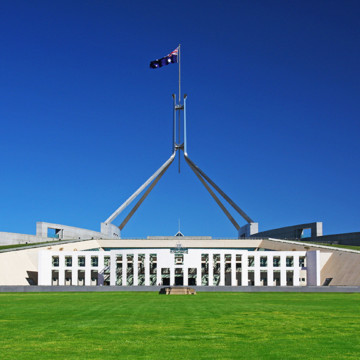

Year 12 Australian Politics Units 3 and 4
Overview
Australian Politics will help you develop your understanding of the Australian political system. You will do so by exploring a range of concepts using current, real-life examples.
Unit 3 looks at all aspects of the Australian political system and institutions (such as the executive, parliament and the judiciary). It analyses the democratic values they uphold. We then compare Australia’s political system with the United States’, studying the strengths and weaknesses of each.
Unit 4 looks at domestic and foreign policy. You will examine the factors that influence the formulation and implementation of Australian public policy. This includes factors inside and outside of government.
Who is it for?
Have you heard about the government or politicians in the news and wanted to have a better understanding of what was being discussed? Do you care about what the government does, but don’t fully grasp how your vote influences parliament and government? Then this subject might be for you.
What you study in this course is relevant to our day-to-day lives. If you study Australian Politics, you will be able to directly relate what you’re learning to events that appear in your news feed.
What do you do?
You will complete weekly written tasks and participate in online discussions. Face-to-face seminars occur once a term at VSV. You will regularly read and view a variety of resources, with an emphasis on keeping up to date with current events in Australian politics through news and other media.
What skills do you need?
A significant proportion of your course work each week will involve reading, so you need to be able to focus and comprehend new ideas this way. Like other VSV subjects, you need to manage your time effectively.
Australian Politics is a research-oriented subject. The set readings provide core information, but to be successful in this subject, you need to keep up to date with current political events, particularly through the use of online resources. This requires you to work with a degree of independence, although your teacher will provide guidance and support.
What skills do you develop?
The ability to:
- think independently and critically (especially on political issues)
- write both informatively and argumentatively using an analytical and objective approach
- interpret factual information from a variety of media sources that have different stances on particular political issues.
Many students who have completed this subject have gone on to do further studies in law, arts, history, teaching, diplomacy, international relations, journalism and, of course, Australian Politics at university.
Requirements
Internet is needed to access this course. All work will be completed and submitted online each week. Regular, independent reading of political coverage in the media is needed.
Things to think about
Like many Year 12 subjects, you will find yourself busy when studying this subject. However, it’s definitely manageable.
Maintaining regular communication with your teacher can help you keep on top of things. If you are based at a school other than VSV, make sure you always use the free/spare periods assigned for this subject.
Things you can do now
The best thing you can do is to make a habit of reading and viewing a variety of media sources covering current developments in Australian Politics. This involves reading political coverage in newspapers and watching current affairs programs on TV. This should include the ABC. Check out the Insiders program if you’re keen on taking a deeper look at political news.
Go to the VCAA website for more information about this subject.
Things to have a look at
A democratic voice
Protests are just one of the ways Australians can try to influence government policy, which we cover in our course.
This video shows climate change protests in 2018.
Does Australia need a government?
A humorous look at Australian Politics.
Election Glossary
For lovers of lingo, this page covers key Australian electoral terminology. We cover some, but not all of these terms in our course.